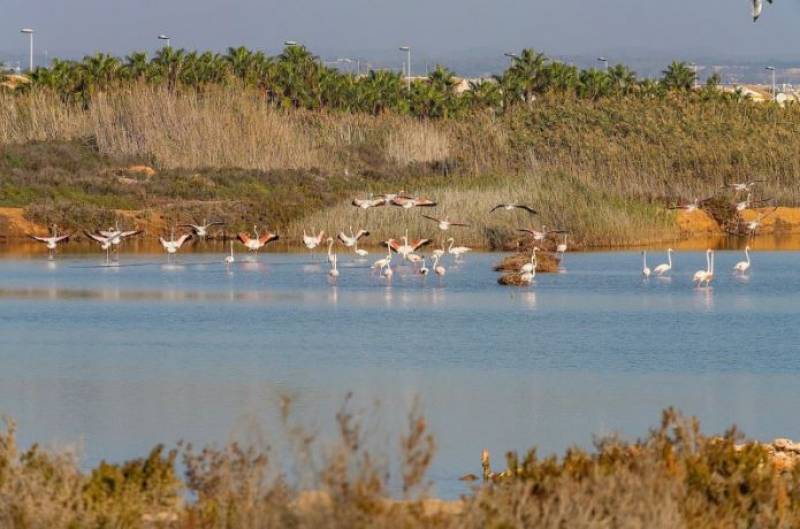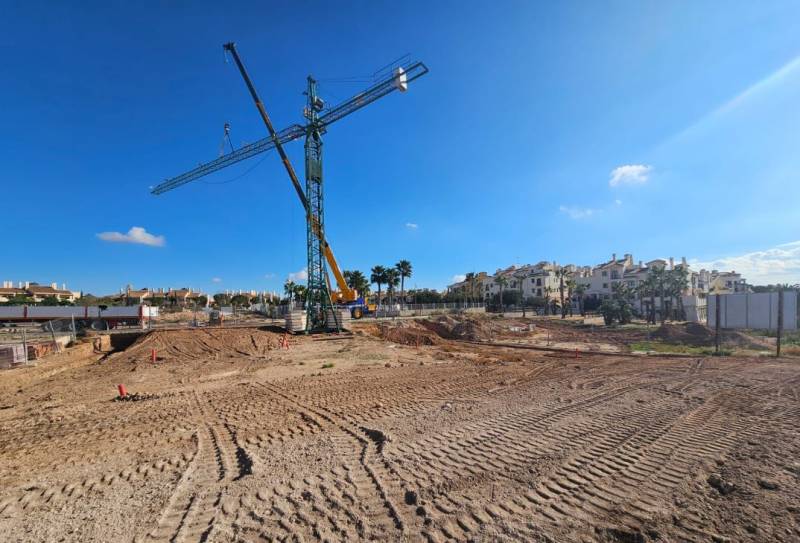- Region
- Vega baja
- Marina Alta
- Marina Baixa
- Alicante
- Baix Vinalopo
- Alto & Mitja Vinalopo
-
ALL TOWNS
- ALICANTE TOWNS
- Albatera
- Alfaz Del Pi
- Alicante City
- Alcoy
- Almoradi
- Benitatxell
- Bigastro
- Benferri
- Benidorm
- Calosa de Segura
- Calpe
- Catral
- Costa Blanca
- Cox
- Daya Vieja
- Denia
- Elche
- Elda
- Granja de Rocamora
- Guardamar del Segura
- Jacarilla
- Los Montesinos
- Orihuela
- Pedreguer
- Pilar de Horadada
- Playa Flamenca
- Quesada
- Rafal
- Redovan
- Rojales
- San Isidro
- Torrevieja
- Comunidad Valenciana


- EDITIONS:
 Spanish News Today
Spanish News Today
 Murcia Today
Murcia Today
 Andalucia Today
Andalucia Today
Date Published: 07/10/2024
Wetlands of Murcia: A ticking time bomb for West Nile virus
Experts believe it’s only “a matter of time” before the virus appears in the Region of Murcia

Andalucía is facing the largest outbreak of the West Nile virus since the first human cases of this infectious disease were detected in Spain in 2010. Nine people have died since July in the neighbouring community after developing meningoencephalitis, the most serious complication associated with this virus.
West Nile virus, transmitted by the common brown house mosquito, has been detected in several other regions across Spain, including Catalonia, Castilla-La Mancha, Extremadura and the Valencian Community.
Although it hasn’t made an appearance in the Region of Murcia yet, the Ministry of Agriculture is on high alert and is keeping a particularly close eye on wetland areas. Mosquitoes have been trapped in Salinas de San Pedro and in other areas of the Region (Salinas de Marchamalo, Mazarrón, Alhama, Calasparra, Cartagena). These samples remain frozen awaiting PCR tests to be carried out on them to unmask the possible presence of both West Nile fever and other viruses transmitted by mosquitoes.
Christian de la Fe, professor of Animal Health at the UMU, and Enrique Bernal, head of Infectious Diseases at the Reina Sofía, agree that the appearance of a case of West Nile fever in the Region is only “a matter of time.”
“We have the conditions for it: the vectors (the mosquito), the hosts (migratory birds) and high temperatures throughout the year due to climate change. We must be clear that this is here to stay," explains De la Fe.
It’s also important to remember that just because human cases haven’t been reported so far doesn’t mean that the virus isn’t circulating in the Region, passed from mosquitoes to migratory birds and carried far and wide.
This means, according to the experts, that there could be real challenges ahead. The Region's epidemiological surveillance system is not yet equipped to conduct real-time monitoring, and staff need training to operate the necessary equipment.
The West Nile virus is particularly insidious, with up to 80% of infected people showing no symptoms. Severe cases, which can lead to meningoencephalitis, are rare, but devastating.
“If 80 cases have been detected in Andalucía this summer, with 9 deaths, it's because “there's a much higher number of infected people,” warns Enrique Bernal.
Oropouche virus
West Nile isn’t the only virus of concern in Spain at the moment. The Oropouche virus, endemic in Cuba, has been detected in two imported cases in Murcia, while dengue fever, transmitted by the tiger mosquito, has seen an outbreak in Tarragona, with 8 reported cases.
Other cases of Oropouche virus, transmitted by mosquito bites, have been reported in Galicia, Madrid, the Canary Islands, the Basque Country and Andalucía. The disease causes fever, intense headache and muscle and joint pain, among other symptoms.
In other news: Rain in Murcia: Weekly weather forecast October 7-13
Image: LIFE Salinas
staff.inc.ali
Loading
See more news about animals in Spain:
OR
Sign up for the Spanish News Today Editors Roundup Weekly Bulletin to get a comprehensive email with all the week’s news for Spain, Murcia, Alicante and Andalucía.
Get a sneak peek – here are a few of our recent Subscription Bulletins:
50% Discount Special Offer subscription:
24.95€ for 48 Editor’s Weekly News Roundup bulletins!
Please CLICK THE BUTTON to subscribe.
Contact Murcia Today: Editorial 000 000 000 /
Office 000 000 000


































